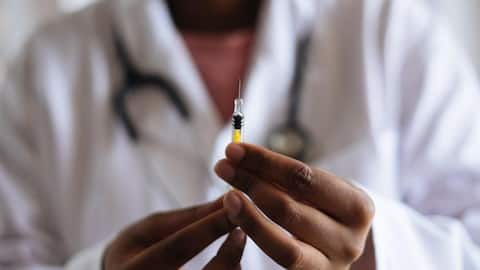World Cancer Day: Understanding the HPV vaccine and its importance
What's the story
The human papillomavirus (HPV) is a widespread sexually transmitted infection that can lead to genital warts and various cancers. As the world unites to observe World Cancer Day on February 4, the urgency of addressing critical health concerns takes center stage. Among these concerns, cervical cancer stands out as a formidable adversary affecting millions of women globally. In this relentless pursuit of women's health, the HPV vaccine emerges as a potent weapon. Let's understand more about the vaccine.
Details
Key details of the cervical cancer and HPV vaccine
The HPV vaccine stands as a vital defense against high-risk HPV strains associated with cervical cancer. Administered ideally before the onset of sexual activity, typically between ages 9 to 14, it strategically targets multiple HPV strains, ensuring a comprehensive shield. Beyond this, the vaccine provides durable immunity, significantly reducing the likelihood of HPV-related cervical abnormalities, and making it a crucial component in the ongoing battle against cervical cancer.
Measures
Additional preventive measures
In conjunction with the vaccine, routine screenings play an equally crucial role in early intervention, detecting precancerous changes. The consistent use of condoms effectively mitigates the risk of HPV transmission, while quitting smoking contributes to overall prevention. Education and awareness campaigns, underscoring the importance of vaccination, screenings, and safe sexual practices, contribute to a holistic approach in the ongoing fight against cervical cancer.
Early vaccination
Vaccination before sexual activity commences is crucial
Dr. Anilasre Atluri, gynecologist at Apollo Spectra Hospital, Chennai, underscores the importance of early vaccination. The Gardasil 9 vaccine, approved by the FDA, is also recommended for individuals aged 9 and older, with routine vaccination starting at age 11 or 12. Vaccination before sexual activity commences proves crucial, and research shows no link between vaccination at a young age and early sexual activity initiation.
Screening measures
Cervical cancer comprises almost 30% of cancers in Indian women
Dr. Rubina Shanawaz Z, consultant of Uro-Gynaecology, emphasizes that cervical cancer accounts for nearly 30% of all cancers in Indian women. Screening measures, such as PAP smears, are crucial in early detection. The HPV vaccine, a milestone in preventive healthcare, targets various cancers and genital warts. Dr. Shanawaz Z applauds the Indian government's initiative to provide the vaccine to girls aged 9-14, a timely step in safeguarding their health.
Awareness
Regular cervical screenings
Deepak Sahni, founder of Healthians, advocates for regular cervical screenings, such as PAP smear and HPV tests, to detect abnormal cells or the presence of high-risk HPV. "These screenings typically begin at age 30 (25 for women with HIV), aligning with the increased cervical cancer risk as women age," he notes. Sahni also urges understanding symptoms and concerns associated with cervical cancer to seek early medical attention.
Dosage
Who needs the HPV vaccine and when
The HPV vaccine, according to both experts, is recommended for individuals aged 9 through 26. Those below 15 require two doses six months apart, while those above 15 need three doses at 0, 1, and 6 months. Catch-up vaccinations are advised for sexually active individuals to protect against other HPV strains. The vaccine is not administered during pregnancy or to those with severe allergies.
Risks
Risks or side effects
Extensive studies affirm the safety of the HPV vaccine. Mild side effects, such as soreness or swelling at the injection site, are common. Fainting can occur, but staying seated for 15 minutes minimizes the risk. Headaches, nausea, or fatigue may also occur. Continuous monitoring by the CDC and FDA ensures the vaccine's safety, providing reassurance to those considering vaccination.
